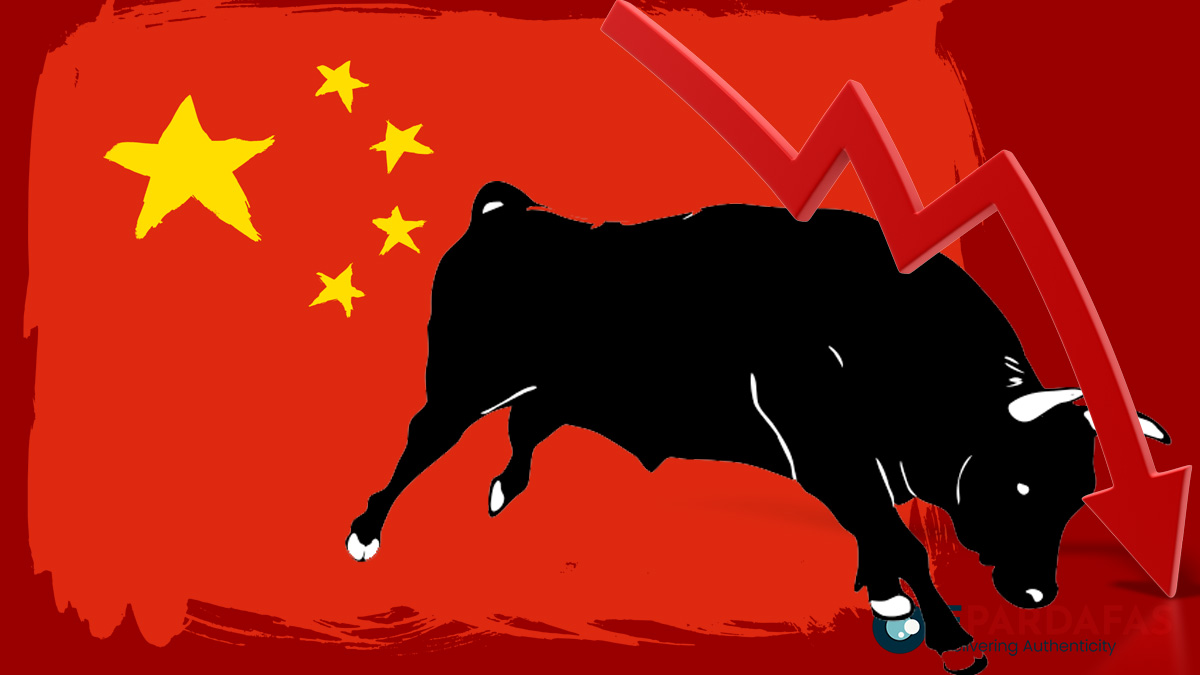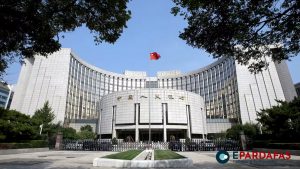
Foreign Investors’ Exodus from China
As China’s economy faces deceleration, the once-attractive landscape for foreign investors is losing its allure. A signal of dwindling confidence, foreign investors have engaged in a sustained sell-off of Chinese stocks, amounting to a staggering $10.7 billion over a record-setting 13 consecutive trading days leading up to August 24. This unbroken streak of divestment represents the longest since data recording began in 2016.
Hong Kong’s Hang Seng index has been hit hard, plummeting over 9% within the month and a staggering 21% from its January peak. Similarly, the CSI 300 index, encompassing China’s largest listed firms in Shanghai, has experienced a nearly 5% slump in August. Remarkably, the CSI 300 now languishes at its lowest point since November 2022. Market observers suggest that the acceleration of this selling trend could be imminent, given the momentum it has gained throughout August.
These declines have brought both indexes to unprecedented lows for 2023. Notable casualties within China’s CSI 300 index include Kweichow Moutai, a prominent liquor distiller, China Merchants Bank, a retail banking giant, LONGi Green Energy Technology, a solar panel manufacturer, and Contemporary Amperex Technology, a lithium-ion battery producer.
The prevailing sentiment surrounding the Chinese economy is one of dwindling business confidence. Foreign investors’ departure from the Chinese stock market is catalyzed by escalating concerns of deflation, underwhelming retail sales, disappointing industrial production figures, and a stark drop in real estate investments.
However, the unease goes beyond economic indicators. Strained relations between China and Western nations, exemplified by US-led trade and investment restrictions, China’s enforcement actions against US consulting firms, and the uncompromising zero-Covid policy’s disruptions to supply chains, have compounded investors’ doubts. China’s efforts to curtail consulting and due diligence firms have injected uncertainty by obstructing access to crucial information about local companies.
China’s recent expansion of its counter-espionage law, broadening the definition of spying-related activities, coupled with numerous raids on consultancies like Capvision, Bain & Company, and Mintz Group, has further exacerbated apprehensions.
The looming possibility of escalated US investment restrictions, paired with existing export controls targeting China’s technological access, adds another layer of unpredictability. The burgeoning yield gap between US and Chinese bonds due to the US interest rate hike and China’s rate cuts has amplified the exodus from Yuan-denominated debt.
A Bank of America Asia fund manager survey underscored a prevailing sentiment: 84% of respondents anticipate a lasting contraction in the proportion of investments in Chinese equities.
The flight of capital has taken a toll on the Yuan, pushing it to its weakest point against the US dollar since November. With economic uncertainty heightened and China’s property sector embroiled in crisis, coupled with an escalating interest rate disparity, the Yuan’s value has suffered. Devaluation is evident, with the Yuan losing over 5% against the dollar and teetering close to last October’s 15-year low reached during the disruptive Covid-19 lockdowns.
A further challenge looms as more than ¥200 billion ($28 billion) is set to mature in mutual funds, presenting investors with alternative destinations for their capital. This forthcoming surge of selling pressure in mutual funds threatens to deepen the Chinese stock market’s predicament. Shanghai Banxia Investment Management Center predicts inevitable net outflows from mutual and private funds, amplifying downside risks.
Analysts stress that these challenges accentuate the downside risks within China’s economy. The steady stream of negative news emanating from China’s property and trust sectors compounds the negative sentiment. Furthermore, a regulatory crackdown on large private companies has triggered an exodus of Chinese millionaires from the nation. As economic concerns intertwine with geopolitical tensions, China’s allure for foreign investors appears to be dwindling at an alarming pace.














Comments